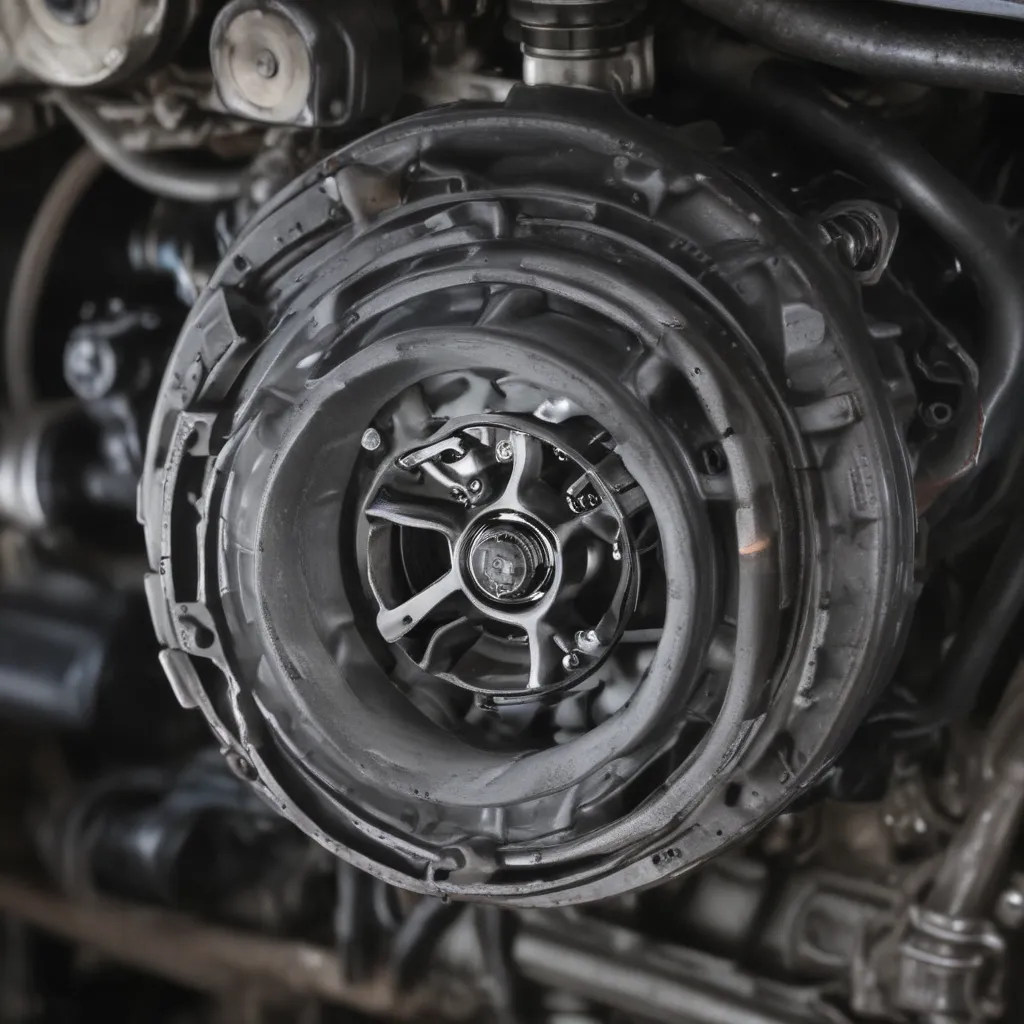
Diesel Engines: The Workhorse of the Road
As the proud owner of an RV or fleet vehicle, you know that a well-functioning diesel engine is the beating heart that keeps your ride on the move. These robust powerhouses have long been the go-to choice for those who demand reliable performance and impressive towing capacity. However, just like any mechanical marvel, diesel engines are not immune to the occasional hiccup or malfunction.
In my years of experience as the owner of Orange County RV Repair, I’ve seen my fair share of diesel-related issues. From fuel system failures to turbocharger troubles, the list of potential problems can seem daunting. But fear not, my fellow enthusiasts! Today, I’m here to shed some light on the most common diesel problems you may encounter, and more importantly, how to keep your rig running like a dream.
Fuel System Woes: Keeping the Lifeblood Flowing
The fuel system is the lifeblood of any diesel engine, and when it starts to falter, the consequences can be severe. One of the most prevalent issues I’ve encountered is clogged fuel filters. Over time, the diesel fuel can accumulate contaminants, such as dirt, water, and even microbial growth, which can quickly plug up the filter. This not only reduces engine performance but can also lead to more serious problems, like fuel pump failure.
…
Turbocharger Troubles: When the Boost Becomes a Bust
Another common area of concern for diesel enthusiasts is the turbocharger. This vital component is responsible for providing the extra boost of power that makes diesel engines so desirable. However, the turbocharger is a delicate piece of machinery that can be susceptible to a variety of issues.
One of the most common problems is turbocharger failure. This can be caused by a variety of factors, such as poor lubrication, excessive heat, or even foreign object damage. When a turbocharger fails, the consequences can be catastrophic, leading to a complete loss of engine power and potentially even engine damage.
…
Engine Integrity: Maintaining the Heart of the Beast
At the core of any diesel-powered vehicle lies the engine itself, and this is where some of the most critical issues can arise. One of the most common problems I’ve encountered is excessive oil consumption. This can be caused by a variety of factors, such as worn piston rings, faulty oil control valves, or even issues with the turbocharger.
Another common problem is the dreaded diesel engine knocking. This loud, metallic sound can be caused by a variety of issues, such as poor fuel quality, incorrect timing, or even engine wear. If left unchecked, engine knocking can eventually lead to serious engine damage, so it’s crucial to address this problem as soon as it arises.
…
Electrical Challenges: Powering the Modern Diesel
In today’s increasingly complex RVs and fleet vehicles, the electrical system plays a crucial role in the overall performance and reliability of the diesel engine. One of the most common problems I’ve encountered is issues with the glow plugs.
Glow plugs are responsible for heating the air in the engine’s cylinders to help with cold-weather starting. When these plugs fail, it can lead to starting issues, decreased engine performance, and even complete engine failure. Regular maintenance and inspection of the glow plug system is essential to prevent these types of problems.
…
Emissions Control Systems: The Environmental Balancing Act
As environmental regulations continue to tighten, the emissions control systems in modern diesel engines have become increasingly sophisticated. While these systems are designed to reduce harmful emissions, they can also be a source of headaches for diesel enthusiasts.
One of the most common problems I’ve seen is issues with the diesel particulate filter (DPF). This vital component is responsible for trapping soot and particulates from the exhaust, but it can become clogged over time. When this happens, it can lead to reduced engine performance, increased fuel consumption, and even the dreaded DPF regeneration process, which can be both time-consuming and costly.
…
Preventive Maintenance: The Key to Diesel Longevity
As with any mechanical system, the key to keeping your diesel-powered RV or fleet vehicle running smoothly is through proper preventive maintenance. This means regularly scheduled tune-ups, filter changes, and inspections to catch potential issues before they snowball into major problems.
One of the most important maintenance tasks is to keep a close eye on your engine oil. Diesel engines tend to be more demanding when it comes to oil quality and quantity, and failing to maintain the proper oil level or change it at the recommended intervals can lead to a host of issues, from increased oil consumption to engine wear and tear.
…
The Power of Proactive Maintenance
By staying on top of your diesel engine’s maintenance, you can avoid the headaches and costly repairs that come with neglecting these essential tasks. At Orange County RV Repair, we’ve seen firsthand the difference that proactive maintenance can make, and we’re always here to help our clients keep their rigs in tip-top shape.
So, the next time you hear that familiar diesel rumble, take a moment to appreciate the engineering marvel under the hood. But remember, even the toughest engines need a little TLC to keep them running their best. With the right preventive maintenance strategy and a trusted repair partner by your side, you can enjoy the open road with confidence, knowing that your diesel powerhouse is ready to tackle any challenge that comes its way.
Visit our website to learn more about our diesel engine repair services
